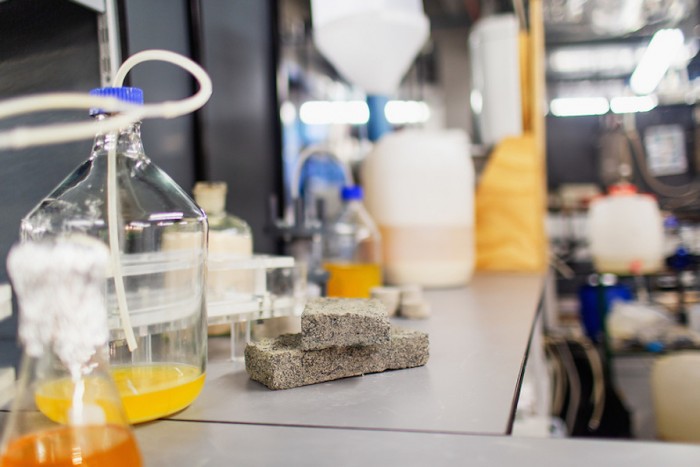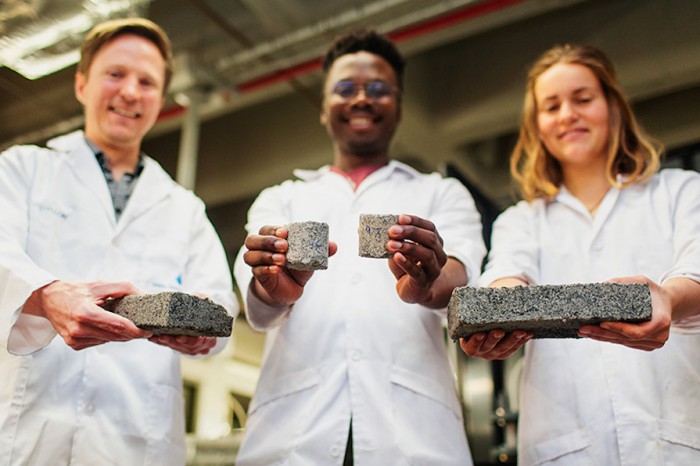Urine is the liquid gold of waste production, says Dr Dyllon Randall, a senior lecturer at the University of Cape Town (UCT).
Along with his team, Randall tested his latest theory by producing the first-ever bio-brick grown directly from human urine. He worked alongside master’s student Suzanne Lambert and honours student Vukheta Mukhari.
“With sustainability in mind, we need a paradigm shift. We should be rethinking waste [like urine], focusing on resource recovery. We need sustainable processes that reduce carbon emissions,” he explained in a Q&A with UCT news.
(Image adapted from UCT news)
This forward-thinking comes at a time where the Earth’s natural resources are diminishing at a rapid pace. In 2018, the Global Footprint New York revealed that humans consumed more natural resources in a year than the planet could ever regenerate.
Randall’s solution is to practice resource recovery by shifting our focus to the resources that have no chance in depleting, like urine.
The biobricks are made when combining the urine with extra calcium and bacteria which gets broken down in a natural process known as microbial carbonate precipitation. In this method, the bacteria breaks down urea present within the urine to produce a type of cement.
(Image adapted from UCT news)
The biobricks sustainability factor extends itself to how the urine is collected as well. The team collects urine directly from selected toilets at UCT that they’ve equipped with removable containers, where the fertiliser and remaining urine builds up.
This is also seen as the world’s first fertiliser-producing urinal.
Randall revealed that it takes up to 8 days to produce a biobrick and for it to be utilised. Right now his team is producing the biobrick from within a lab but he also questions the economic effect it could have if mass produced.
“Our current economy is linear: we take, we make, we dispose of. The circular economy focuses on making, using and recycling,” he says.
A brand that is currently following the new formula is nature company, BioMason. They are said to be growing up to 2500 bricks a day with the use of synthetic urea and without any heat. Although Randall wants to follow in this path he does clarify that his biobrick does indeed differ.
“Firstly, we produced a bio-brick from urine, not a conventional brick. Other practitioners have previously made mud bricks using human urine. We use bacteria and a process called Microbial Induced Calcium Carbonate Precipitation (MICP) to create our bio-bricks,” he explains.
“Secondly, BioMason uses synthetic urea for their process, not synthetic urine. Finally, this is not the world’s strongest ‘brick’ – it still requires further testing to improve the strength.”
When it comes to further development of the biobrick, Randall applied for additional funding in 2017 and it was accepted. The funds received will allow expanding on the invention in 2019.
Read more:
bioMason grows bricks without using any heat
The world is changing and green material is at the forefront








